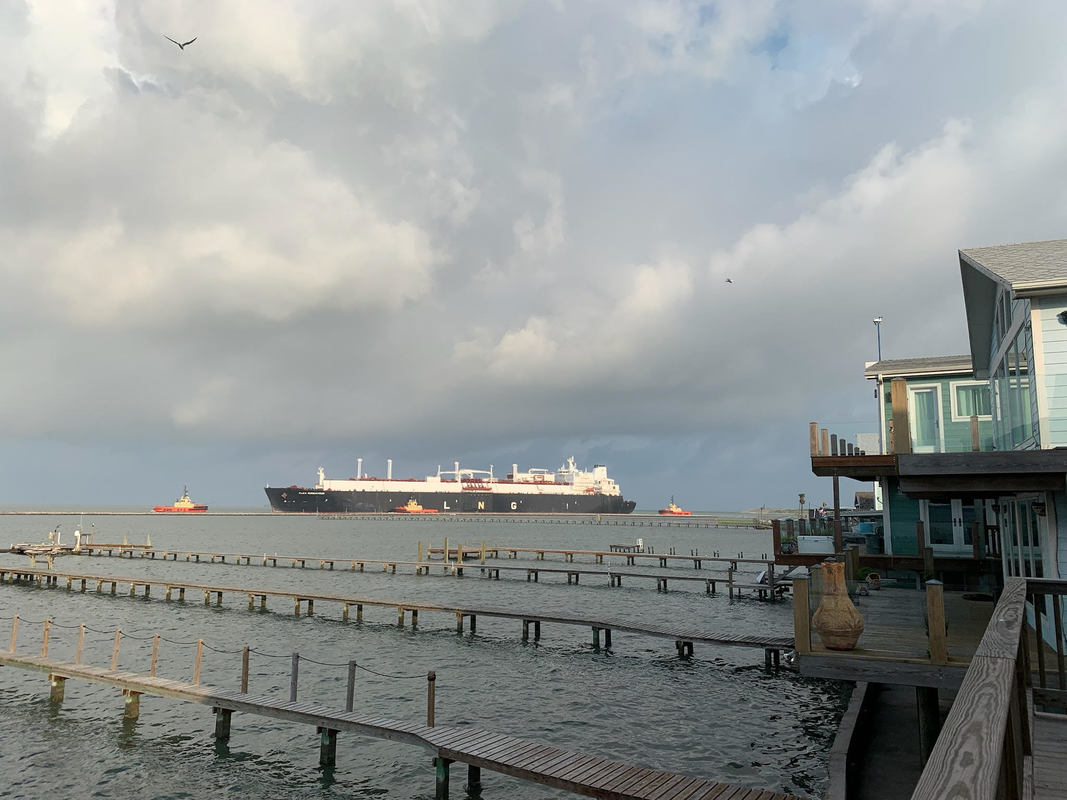A flotilla of LNG barges are lined up in European ports waiting to offload their cargo of liquified methane (“natural”) gas (LNG) to be delivered across the continent. Our allies overseas have been impacted by Russia cutting off delivery of gas after its invasion of Ukraine, so the EU started to proactively source gas from other locations, including LNG from existing US export terminals.
Europe took that and other immediate steps to brace for a tumultuous winter, including undertaking aggressive efforts to conserve energy and accelerate the transition to a clean energy economy. In response to the energy crisis, the EU doubled down on its clean energy targets in REPowerEU, including raising its 2030 renewables target to 45% and reaffirming its commitment to reduce gas consumption 30% by 2030. The EU followed up shortly thereafter with a commitment to reduce gas consumption 15% from August 2022 through March 2023.
Companies who frack, process, and transport that methane gas have been telling Americans the only way to help our allies in Europe is through supplying more gas and accelerating exports from the US. But now so much US-sourced LNG has been sent to Europe, in fact, that the region’s grid operators do not have enough capacity to “regassify” the superchilled LNG for use. In fact, Europe’s efforts have resulted in their gas storage being nearly full, at over 95% capacity.
The International Energy Agency (IEA) recently released its annual World Energy Outlook (WEO) and said, “No one should imagine that Russia’s invasion can justify a wave of new oil and gas infrastructure in a world that wants to reach net zero emissions by 2050.” But that is just what gas companies are attempting to do.
New or expanded gas export infrastructure would not be ready for years and will do nothing to aid Europeans in the short term. And now this industry front is even more disingenuous. Not only is it clear Europe can not handle additional deliveries from existing terminals right now, some of the LNG ships arriving at port aren't even waiting for capacity to open up in Europe anymore and are heading to Asia to unload where they can cash in on their cargo more quickly while there is speculation that other ships in the flotilla are waiting in port purposefully to get the highest price possible for their product.
We can better meet domestic energy demands and meet urgent climate goals by rejecting expanded LNG gas exports and investing in clean energy. Lifecycle emissions from full operation of the existing and proposed LNG export facilities would contribute to the climate crisis as much as 640 coal plants or 515 million cars, according to Sierra Club analysis and our new US LNG Tracker tool. We must not fall for the lies Big Gas is attempting to sell to the American public to line the pockets of shareholders and executives.
Not only would expanded LNG export capacity not help our allies overseas, but energy consumers can not afford it. According to the U.S. Energy Information Administration's (EIA) Winter Fuels Outlook 2022, methane gas customers will see a big increase in their winter gas bills this year, for the second year in a row – paying 62% more than two years ago. The Federal Energy Regulatory Commission’s (FERC) Winter Outlook also expects higher prices and acknowledges that these increased gas prices are due, in part, to expanded exports.
The WEO explained, “High energy prices are causing a huge transfer of wealth from consumers to producers, back to the levels seen in 2014 for oil, but entirely unprecedented for natural gas. High fuel prices account for 90% of the rise in the average costs of electricity generation worldwide, natural gas alone for more than 50%.”
Sierra Club, along with nearly 50 partners, has asked DOE to stop acting as a rubber stamp on LNG export applications and to take into consideration climate, environmental justice, and economic impacts when deciding whether to permit exports. Increased prices on American energy consumers, coupled with the climate impacts of gas and the public health and pollution burden on frontline communities of LNG export terminals, make it clear these projects are not in the public interest.
The United States has already become the world leader in LNG exports, and this has come at a cost to American households. Europe can not handle an even greater influx of expanded gas exports. Consumers can not afford the price gouging by gas companies. Our environment and frontline communities can not be further burdened with the pollution from more dirty, dangerous infrastructure. The conclusion is simple, we must reject increased gas production and export.
